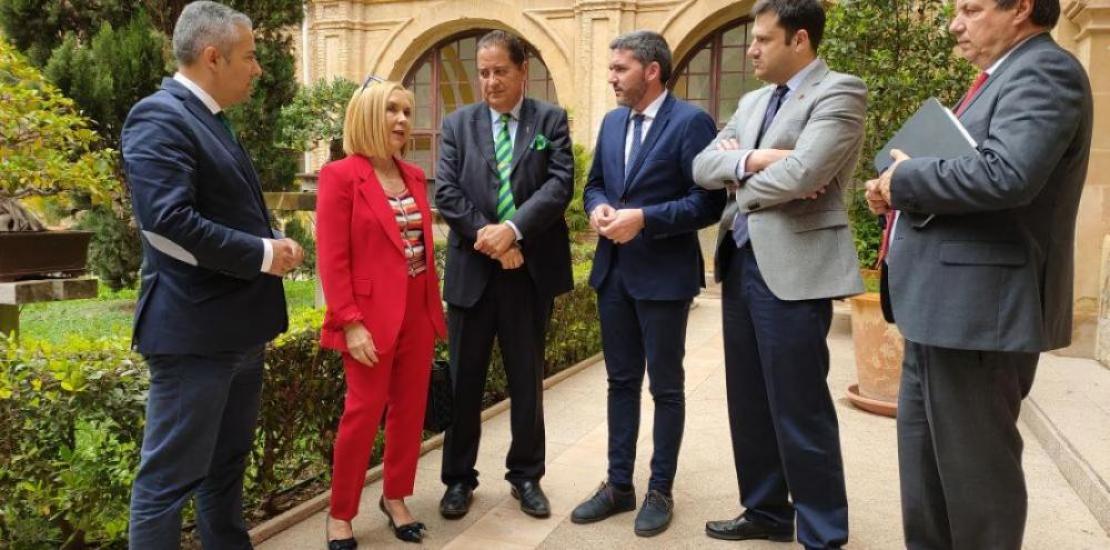Murcia, an example of water efficiency
At an event with experts, organised by the Degree in Civil Engineering of UCAM, it was concluded that, if irrigation systems were modernised throughout Spain with the technology that is already being applied in the Region, there would be a sufficient surplus to cover the water needs of Spain’s basins.
"One out of every three people on the planet does not have access to drinking water services, which means 1,800 million inhabitants; something tragic that highlights the need to continue making progress in water management, in which the Region of Murcia is a reference model, as it is one of the few regions in Europe that treats practically 100% of its wastewater". With these words, Pedro de los Santos Jiménez, Vice-Dean of the Degree in Civil Engineering at the Universidad Católica de Murcia, highlighted the importance of the Conference 'Water Management in the Region of Murcia, following the Sustainable Development Goals' held in the Chapter House of the Monastery of Los Jerónimos.
At the closing ceremony, Antonio Luengo, Regional Councillor for Water, Agriculture, Livestock, Fisheries and the Environment, pointed out that "our Region has perfectly internalised the importance of proper water management. We are experts, and we can say that we have been achieving excellence in water cycle management for a long time".
"We invest in technology and innovation to use the best techniques to treat more than 99% of the water we consume using the basic principle of circular economy, which is why we are a world leader.
Along these lines, at the inauguration of the conference, José Sandoval, General Director for Water of the Regional Ministry of Water, Agriculture, Livestock, Fisheries and Environment of the Region of Murcia, highlighted the role of irrigation because "with a growing population that will reach 9.6 billion people in 2050, it will be essential to feed all these inhabitants".
Furthermore, the Region of Murcia would be an example to follow, since "in Spain some 400 cubic hectometres are regenerated and 25% is from the Region of Murcia", so it is urgent to take measures at national level as "in Spain there are 900,000 hectares of agricultural fields to be modernised, which would allow us to save some 2,000 hectometres of water a year. To understand this statistic, the Region of Murcia requires around 1,400 cubic hectometres a year". This figure takes on a greater dimension in view of the latest information that suggests an increase in the ecological flow of the Tajo River, which would reduce the water received by the Segura basin by 100 cubic hectometres: "Its application will mean an increase in the water level of 2.1 centimetres at the control pass near Aranjuez. Will this mean a qualitative improvement in the ecology? The way forward is to improve water quality through purification, as is done in the Region of Murcia, and to allow water to go from where it is to where it is needed".
Finally, he announced that, as an important new development to continue improving efficiency in the management of water for agriculture, "we are carrying out a new project to install 1,000 probes in the Campo de Cartagena that will collect data such as temperature and humidity to use the right water with the right fertiliser at each location. It's a way of making the most of the resources we have.




